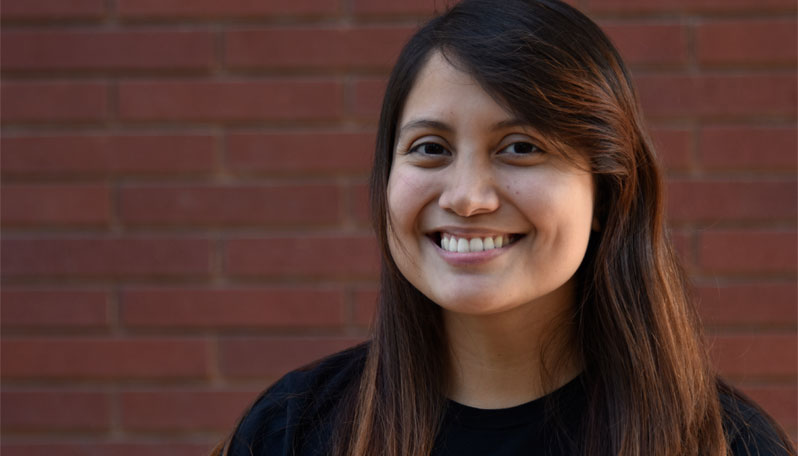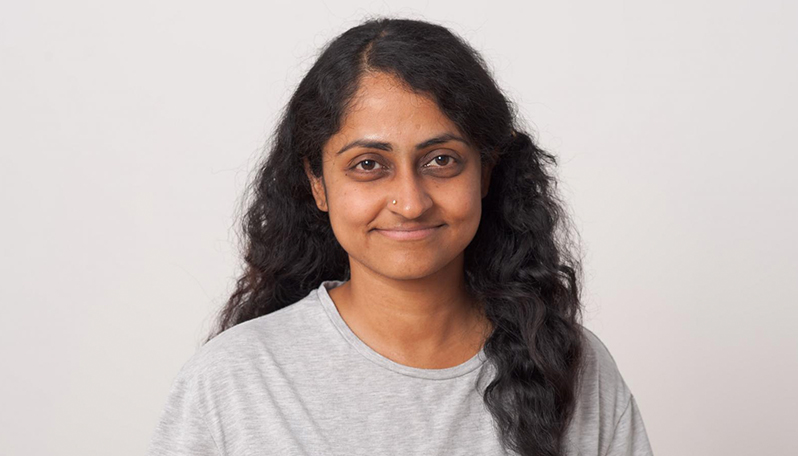APAC women in tech: Meet Google software engineers Tulika Agrawal and Shachi Dave
I’m a computer science major at Cornell University focused on the intersection of social justice and machine learning. I recently completed a short-term Product Inclusion Fellowship, which was a pilot program, at Google. During my time there, I wanted to meet technical women around the world and learn how they bring their intersectional points of view to engineering. So I reached out to the co-leads of the Women in Engineering community at Google in India at the time of my fellowship in early 2019: Tulika Agrawal (above, left) and Shachi Dave (above, right).
Tulika is an Engineering Manager at Google in Bangalore. She received her undergraduate degree in computer science at Birla Institute of Technology and Science, Pilani, her master's degree in computer science at UC San Diego, and her MBA at ETH Zurich. She has worked at Google in both Kirkland (in Washington State in the U.S.) and Zurich prior to Bangalore.
Shachi is a Software Engineer at Google in Bangalore. She received her Master's degree in Computer Science at the University of Southern California. Prior to joining Google, Shachi worked at a couple of startups in the U.S.
Here, they share their perspectives on inclusive engineering and how they built their careers as women in tech. I was curious how their experiences in India might inform how I might shape my own path and that of many others around the world.
How does your background shape your role at Google?
Tulika: I gained an interest in studying computer science quite early. In India, computer science is taught starting from sixth grade. I had an interest in the subject and had lots of support to pursue it from my family and my teachers. I studied it in college and graduate school and joined Google as a software engineer right after graduation. I left for a little while to serve as the CTO of a smaller company, but then I returned to Google as an engineering manager.
Shachi: I started my career in Information Retrieval and NLP (Natural Language Processing)-based search and dialog systems. At the time, this idea was quite advanced and the tech field wasn’t ready or prepared for it. However, ten years later, now we have the processing power and resources to do that at scale. I feel like my career has come full circle. I now work on a product that allows users to have conversations with their computer naturally. As a software engineer, my job is to make sure that our users don’t have to struggle to get the information they need and identify and fix cases where the product failed to help users complete their task or tasks.
What do you find most inspiring and enjoyable about your work?
Tulika: I really enjoy leading a team of engineers and creating really great products that can reach people all around the world. There is lots of value in that.
Shachi: My inspiration comes from the fact that the work that I do empowers millions of users worldwide. It is always gratifying to see people around me using the very product that I helped build.
What is your involvement with Women in Engineering in India, and what prompted you to become involved?
Tulika: I was involved with Women in Engineering at Google when I was at Google in Kirkland and in Zurich, so when I came to India, I became involved here too! I decided to join because of the sheer fact is that women are underrepresented at most tech companies, and it is nice to have a group of people with the same interests as you. Over time, our group has grown a lot in size as more people are interested in joining the group and creating these circles. The more people there are, the more support there is. It really is a wonderful community.
Shachi: Over the years, I have benefited greatly from the guidance and support from different female leaders at Google. To spread this support, I became involved with the organization. Women in Engineering at Google in India has grown over twice in size since I became involved. With an organization like this, I have the ability to connect with, help, and provide support to female engineers across Google in India.
Why do you think inclusion is important?
Tulika: From a product lens, inclusion means that different types of people are able to use the product, but they don’t think a certain feature is made just for them. These features should integrate naturally and truly benefit everyone.
On the other hand, in terms of team makeup, as an engineering manager, I strive to be inclusive towards people of different backgrounds and identities. People definitely should feel included, but not to the point that they feel targeted. As a manager, I have found people really appreciate that. Additionally, having a diverse team is really important. Diverse, not just in terms of gender and ethnicity, but in terms of background in general.
Shachi: Inclusion is important in order to get diverse perspectives for any given problem, since people with the same background usually tend to think alike. In a workplace, teams with diverse backgrounds have the ability to look at problems from different perspectives, thereby leading to solutions that work for a wider group of potential users.
Inspired by Tulika and Shachi? Apply for a job at Google to create, design, code and build for everyone.
Contact Us
Stay in touch. We want to hear from you. Email us at Acceleratewithgoogle@google.com
Please note that this site and email address is not affiliated with any former Google program named Accelerator.



